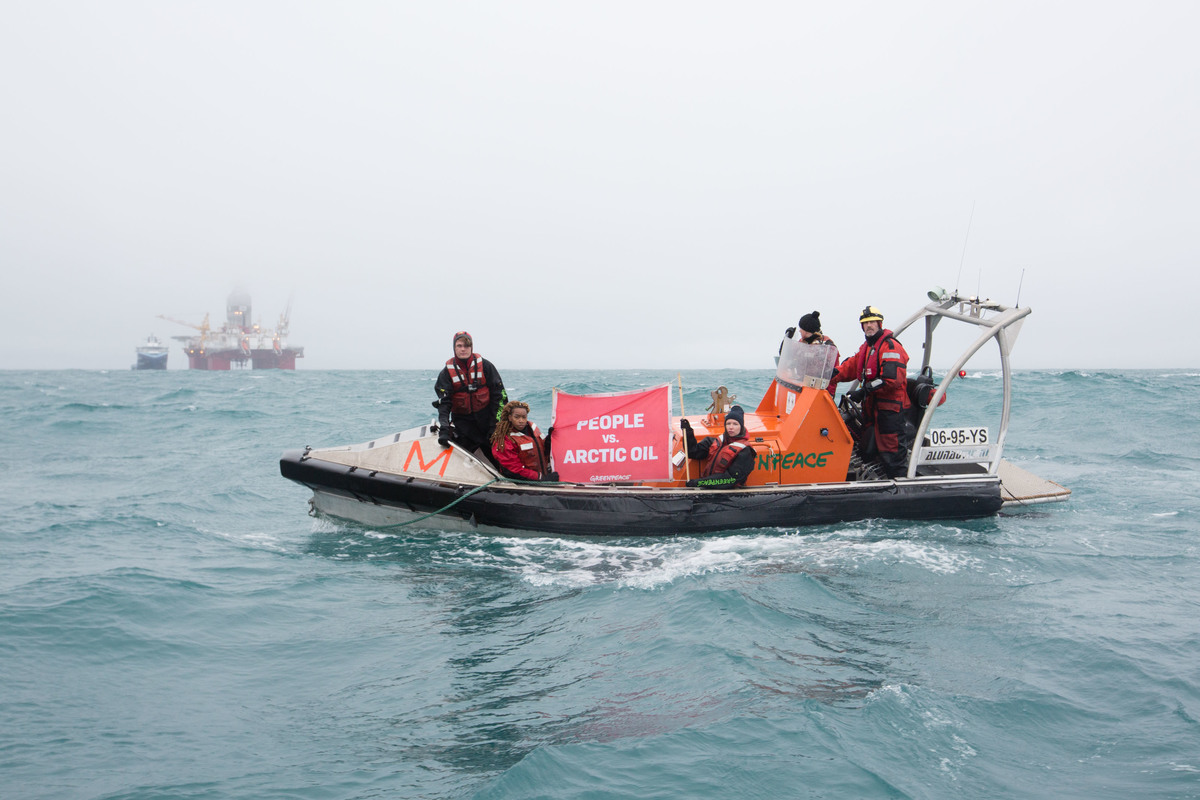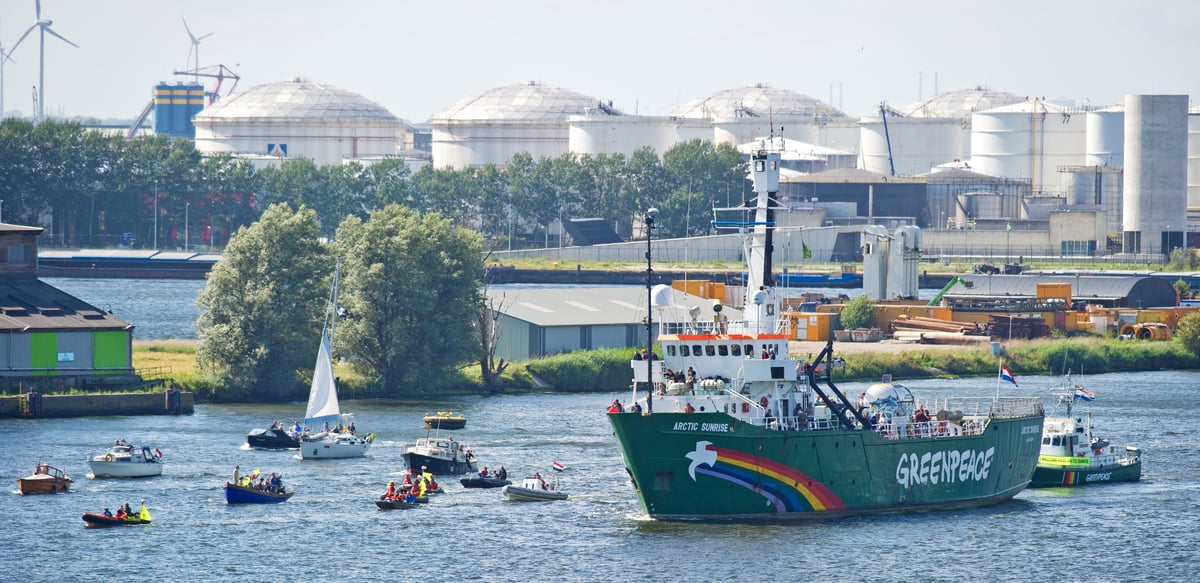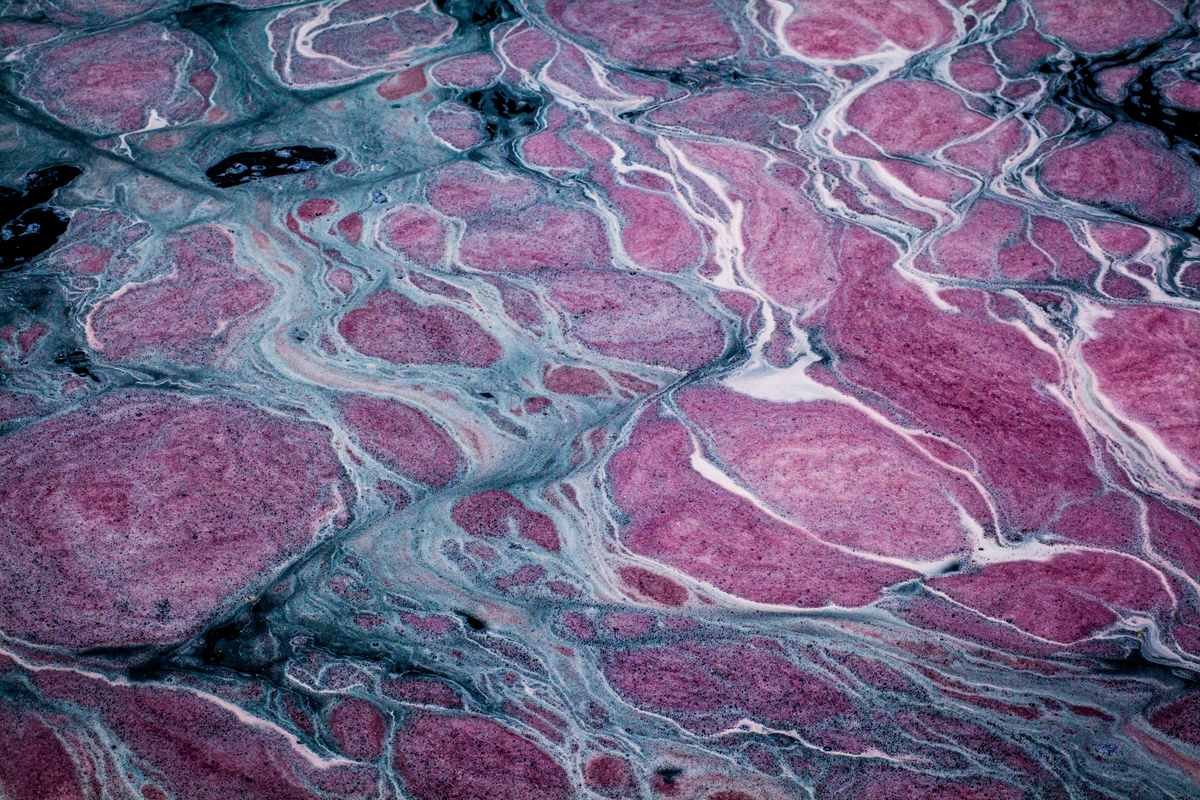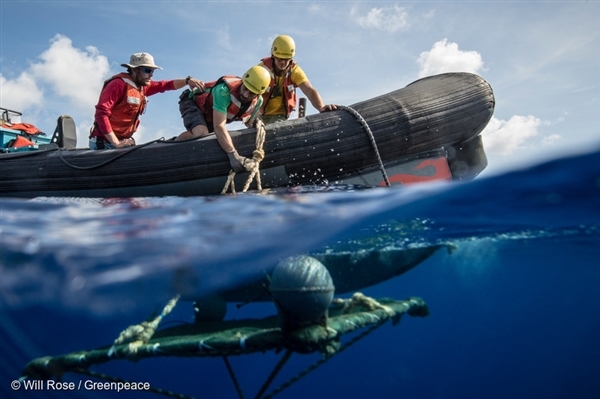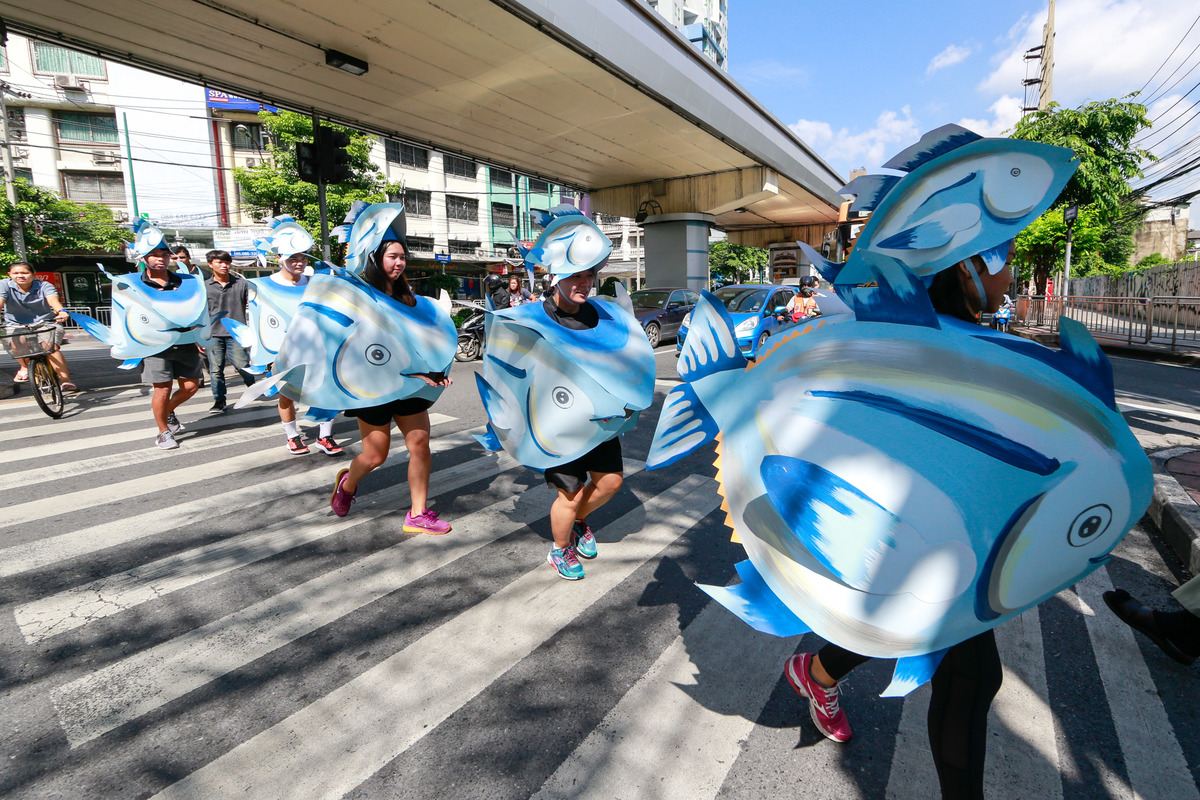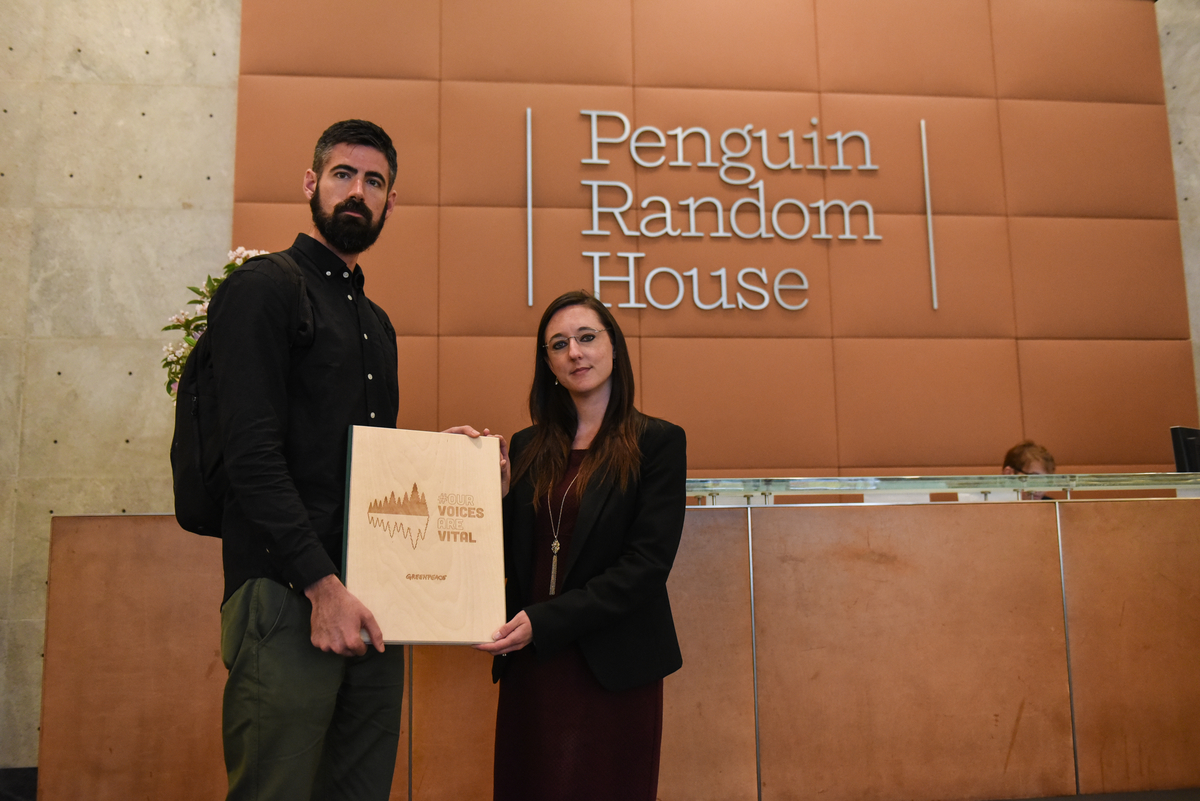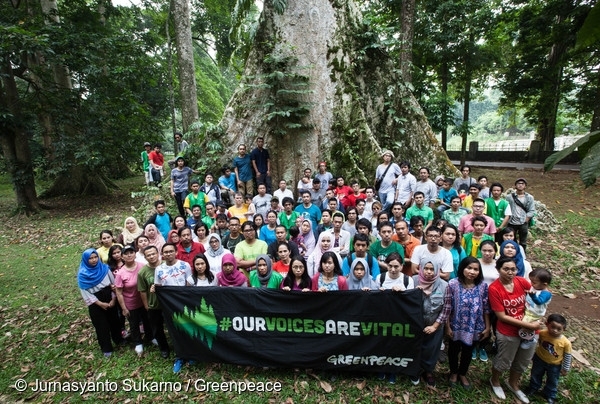-
Actress Lucy Lawless joins climate change survivor in protest against Arctic exploitation for Norwegian oil
Barents Sea, Norway, 21 July 2017 - 11 peaceful activists from the Greenpeace ship Arctic Sunrise have taken to the water in inflatable boats with handheld banners to oppose the Statoil Songa Enabler oil rig, 275 km North off the Norwegian coast, in the Arctic Barents sea.
-
Justice served in Greenpeace Arctic 30 case as Russia ordered to pay the Netherlands €5.4 million in damages
An international tribunal has awarded the Netherlands €5.395.561,61 plus interest in damages over the high-profile Greenpeace ‘Arctic 30’ dispute with Russia, concluding proceedings which resoundingly reaffirm the right to peaceful protest at sea.
-
Tesco publicly commits to Detox its textile production, as retailers start tackling throw-away fashion
Hamburg, 14 July 2017 - Tesco, one of the world’s largest retailers has today announced they will immediately begin the process of eliminating hazardous chemicals from the supply chain of their garment brand F&F, sold in 2,300 stores trading out of 23 different countries, and release a complete list of their suppliers.[1]
-
Winning on the world’s largest tuna company and what it means for the oceans
It took two years of relentless campaigning and nearly 700,000 concerned people from around the world, but today we are sharing the good news that together we convinced the world’s largest tuna company to clean up its act!
Sarah King • 4 min read -
Thai Union commits to more sustainable, socially-responsible seafood
Bangkok, 11 July 2017 – Thai Union Group PCL has committed to measures that will tackle illegal fishing and overfishing, as well as improve the livelihoods of hundreds of thousands of workers throughout the company’s supply chains.
-
Violence against Indigenous peoples destroys our common home
Indigenous lands contain vast biological diversity. These communities are fighting not only to preserve their cultures but also to preserve what is left of Earth's wild ecosystems.
-
5 ways tech companies are making your devices die too soon
Imagine a world where your electronic gadgets would last, or a place where your devices could be easily repaired. Imagine all the money saved!
-
Apple, Samsung products among least repairable in new Greenpeace assessment of tech brands
San Francisco, 27 June 2017 - Fairphone, Dell and HP are the only companies that make spare parts and repair manuals available to the public, while products from brands such as Apple, Samsung and Microsoft are among the least easy to repair and upgrade, according to Greenpeace’s latest IT product guide.
-
What happened when we demanded that publishers hear the voices of 500,000 of you
More than half a million people have stood up for free speech and for the Canadian boreal forest, raising their voices to call on the largest global publishers to pay attention and be our allies.
-
We speak for the trees
When Resolute Forest Products, Canada’s largest logging company, threw two multi-million dollar lawsuits at Greenpeace and Stand.Earth for speaking out for the protection of the Canadian boreal forest, people around the world did not sit idly by.

